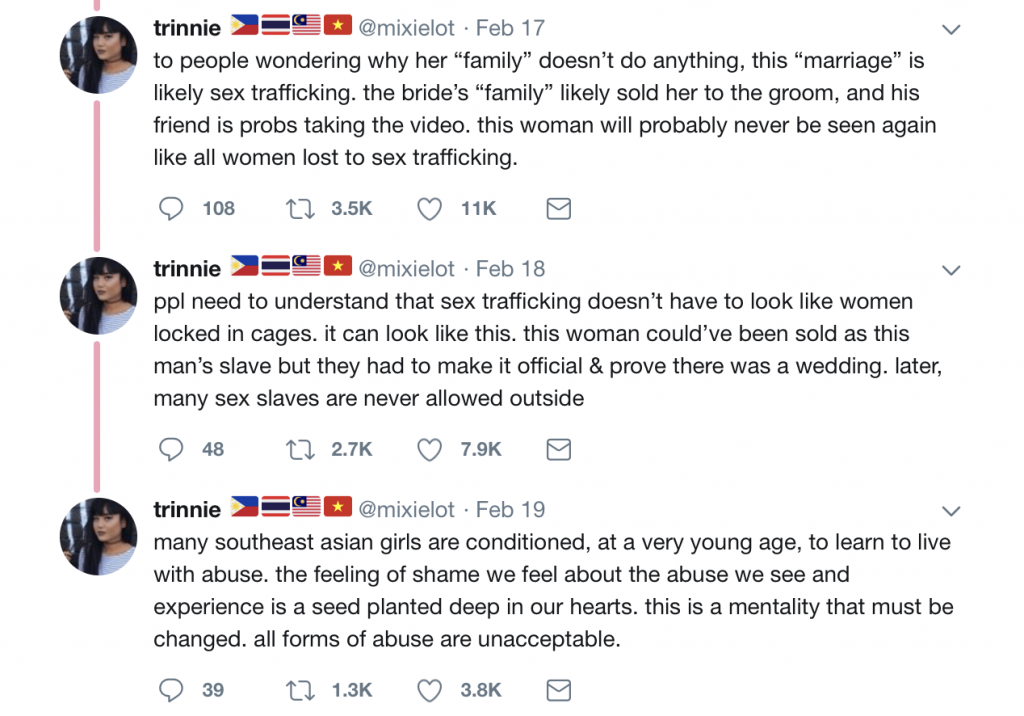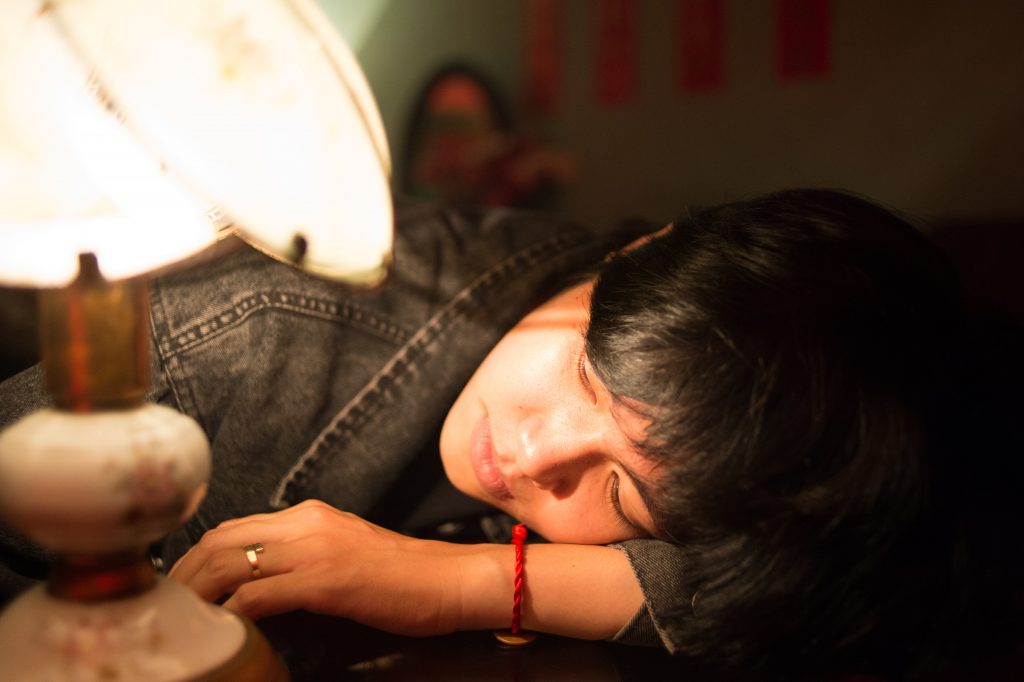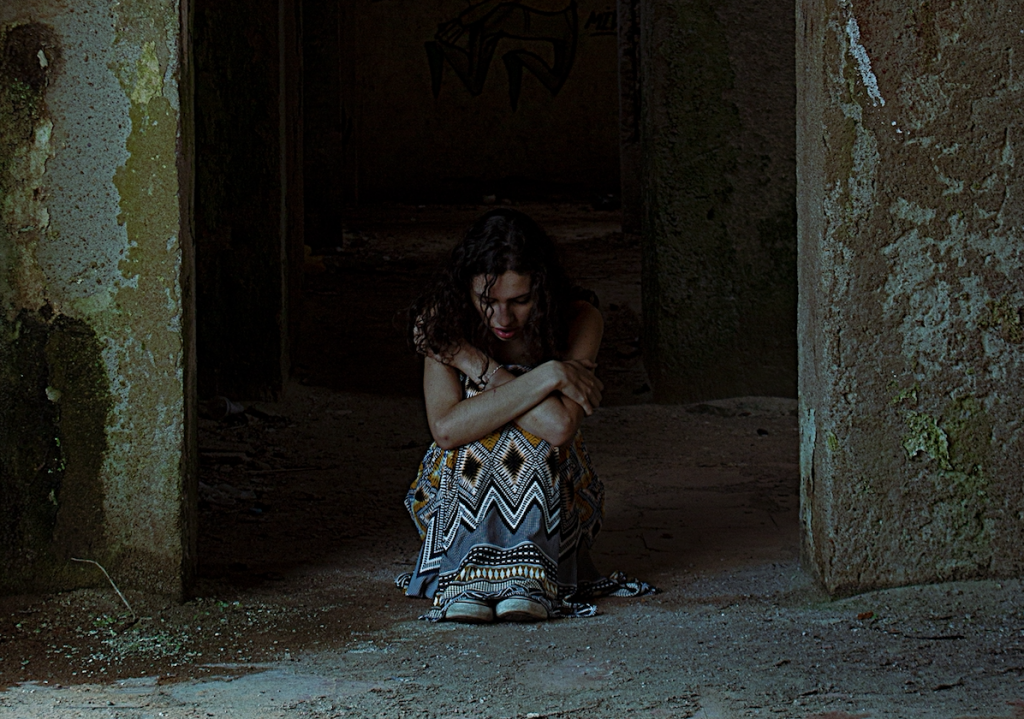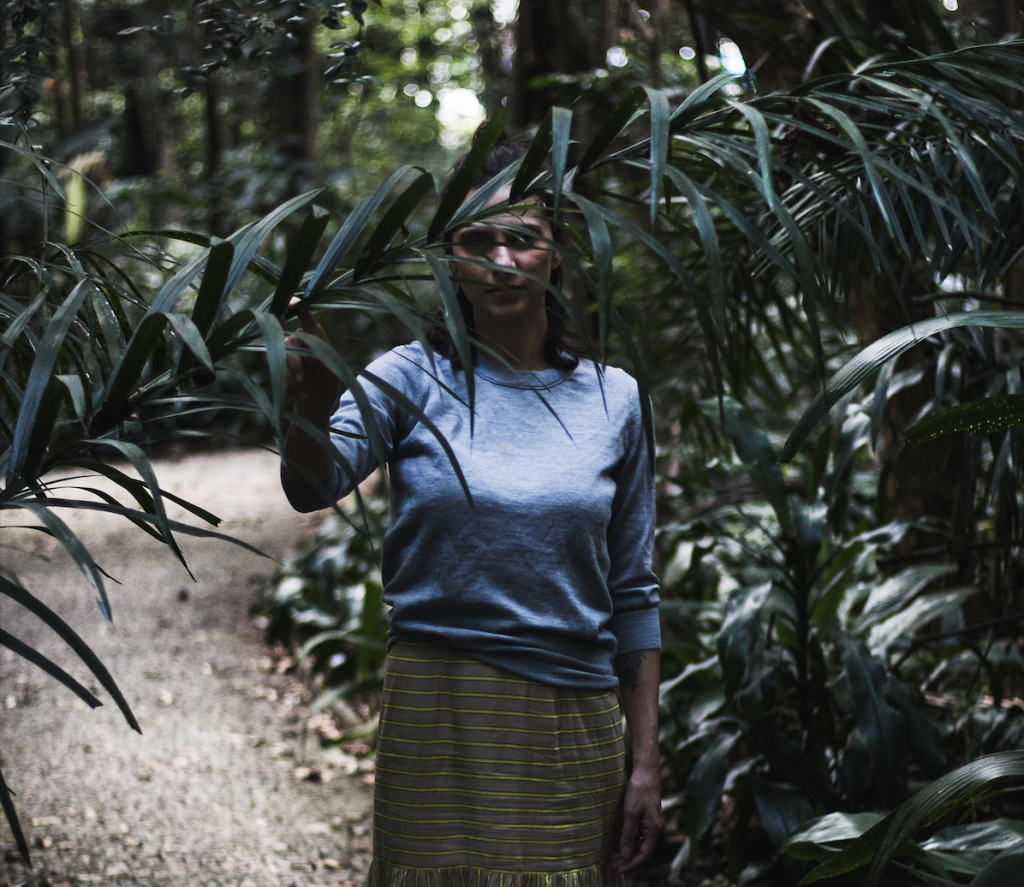Video of Asian Bride Being Abused By Husband Reveals Dark Reality of SE Asia’s Sex Trafficking


By Jin Hyun
A video of an Asian woman being physically assaulted by her husband on their wedding day has gone viral on Twitter, sparking a widespread debate on sex trafficking and domestic violence issues surrounding Asian women — particularly in Southeast Asia.
The video shows an Asian woman wearing a wedding dress feeding a man, which many Twitter users believe to be her groom, a piece of their wedding cake. When she playfully moves the dessert away from her husband’s mouth, he retaliates by slapping her across the face, making her fall backwards.
The thread, which has been retweeted over 60,000 times states, “Asian girls face so much abuse. Sometimes we have to laugh it off or risk more abuse. In Southeast Asia, thousands of women get married to white foreigners and never contact their families again for unknown reasons. It’s so serious but no one’s listening.”
asian girls face so much abuse. sometimes we have to laugh it off or risk more abuse. in southeast asia, thousands of women get married to white foreigners and never contact their families again for unknown reasons. it’s so serious but no one’s listening pic.twitter.com/B4UmqNM3JE
— trinnie 🇵🇭🇹🇭🇲🇾🇻🇳 (@mixielot) February 17, 2019
The user highlights the nature of modern-day sex trafficking and how these forms of abuse may go unnoticed by many unsuspecting people:
“To people wondering why her ‘family’ doesn’t do anything, this ‘marriage’ is likely sex trafficking. The bride’s ‘family’ likely sold her to the groom, and his friend is probs taking the video. This woman will probably never be seen again like all women lost to sex trafficking,” she writes.

“Ppl need to understand that sex trafficking doesn’t have to look like women locked in cages. It can look like this. This woman could’ve been sold as this man’s slave but they had to make it official & prove there was a wedding. Later, many sex slaves are never allowed outside.”
The twitter user continues to highlight cultural issues that enable such abuse to continue while silencing young Asian women.
“Many Southeast Asian girls are conditioned, at a very young age, to learn to live with abuse. The feeling of shame we feel about the abuse we see and experience is a seed planted deep in our hearts. This is a mentality that must be changed. All forms of abuse are unacceptable.”

While mail-order brides and sex tourism is a commonly known trafficking industry, sex trafficking also includes other forms of recruitment of individuals by force or coercion. The definition of human trafficking by the United Nations is “the recruitment, transportation, transfer, harbouring or receipt of persons, by means of the threat or use of force or coercion… for the purpose of exploitation.” This can include the use of indebtedness to exploit another person for sex work or even marriage.
The 2017 Polaris Project found that in America, 27% of trafficking survivors were Asian, making them the second largest group after Latino Americans, at 34%. According to the International Labour Office, in Asia and the pacific, roughly 2 out of every 1000 people were victims of forced marriages — with an overwhelming percentage of this being young women.
As the tweet suggests, sex trafficking isn’t always as clear as day. Families of women from impoverished backgrounds are often tricked into selling their daughters to marry foreign men, believing they will have more financial security in life. This transaction is heavily biased and while the women are often given rigorous background checks, for the men, this is — in many cases — almost non-existent.

Furthermore, these forced marriages expose women to increased risk of coerced sexual initiation, marital and/or statutory rape and domestic violence. In the worst cases, some of these women are never heard from again.
An overwhelming majority of these victims come from vulnerable positions with very little social, legal or financial protection, in countries where gender discrimination is the most extreme. According to the U.S. State Department’s Trafficking in Persons Report, countries with unstable governments are also more likely to have higher percentages of human trafficking.
Sex trafficking is especially rampant in South East Asian countries such as Thailand, Cambodia and the Philippines where this industry provides a substantial amount of jobs and income to the population. The sex industry in these regions are only projected to keep growing despite economic trouble in other fields.

According to Human Trafficking Search, many of these victims suffer from serious mental health issues as a result of the abuse such as anxiety, depression, memory loss and PTSD and could be exposed to other health risks such as HIV/AIDS. Both male and female victims often face social ostracism and stigma which deter them from reaching out for help. For those who are trafficked internationally, language barriers and cultural/geographical differences leave them even more isolated.
While this one woman’s experiences on her wedding day were captured on film and circulated on the internet, there are thousands of others who are sold and trafficked but never seen again. Many Southeast Asian women involved in the mail-order bride schemes are tricked into believing they are going to marry foreigners while also being able to provide money for their families but ultimately end up being sold into trafficking rings.

Red flags can be difficult to spot in these situations. However, if you suspect someone you know could be a victim of trafficking, you’re encouraged to reach out to the National Human Trafficking Hotline at 1-888-373-7888.
Share this Article
Share this Article